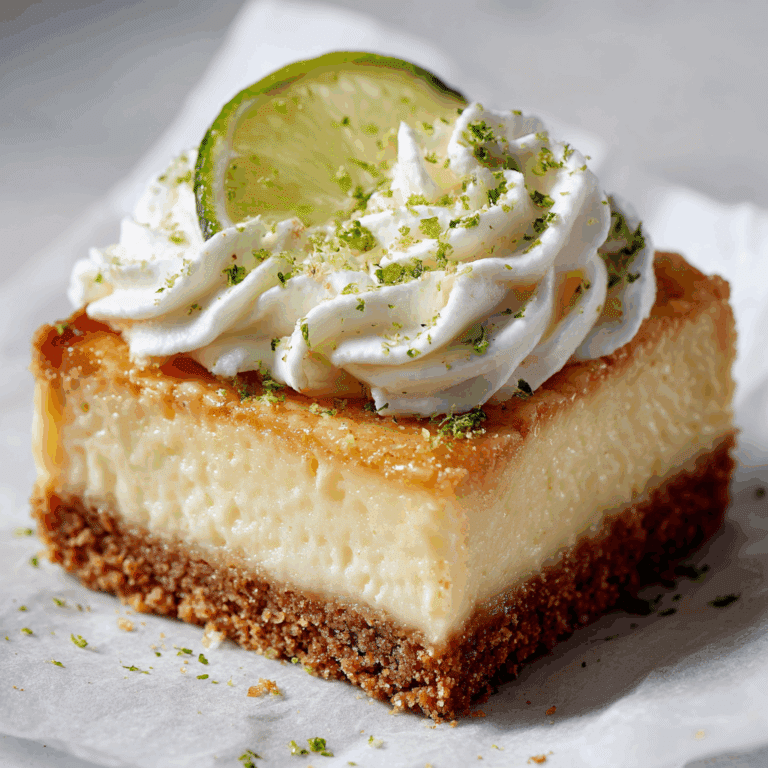Turkish Eggs (Çılbır) Recipe
Turkish Eggs (Çılbır) is a game-changing breakfast that combines silky poached eggs, creamy garlicky yogurt, and a drizzle of spicy, fragrant butter, all finished with fresh herbs and crusty bread for dipping. Whether you’re craving something hearty yet light or looking to impress at brunch, this dish is as satisfying as it is beautiful—each bite is a swirl of contrasting textures and vibrant flavors. Turkish Eggs (Çılbır) holds a special place as a comfort classic, yet feels exotic enough to make any morning feel celebratory.

Ingredients You’ll Need
Great news—Turkish Eggs (Çılbır) comes together with just a handful of pantry staples, each one playing a big role in the overall magic. Every ingredient has its purpose, helping to create the creamy, tangy, spicy, and crunchy harmony that makes this dish unforgettable!
- Plain Greek or Turkish yogurt (1 cup, at room temperature): Go for thick, tangy yogurt to form the luxurious base. Letting it warm up ensures the eggs don’t cool off when served.
- Garlic clove (1, finely grated): Adds a gentle punch and aromatic depth to the yogurt.
- Pinch of salt: Don’t skip it—a tiny sprinkle balances out the yogurt and ties the flavors together.
- Large eggs (2): The star of the show; poached to runny or medium-soft perfection.
- White vinegar (1–2 teaspoons): Just a splash in your poaching water helps eggs hold their shape with dreamy, cloud-like whites.
- Unsalted butter or olive oil (2 tablespoons): Melts into a luscious sauce; butter gives richness, while olive oil keeps it light and fragrant—your call!
- Aleppo pepper flakes (2 teaspoons): These mildly spicy, fruity flakes add signature color and warmth. If you can’t find them, try smoked paprika with a pinch of chili flakes for a tasty twist.
- Fresh dill or mint: A shower of herbs brightens each bite with a cooling, fresh element.
- Crusty bread: Absolutely essential—you’ll want something sturdy for scooping up every last drop of yogurt and spiced butter.
How to Make Turkish Eggs (Çılbır)
Step 1: Prepare the Garlicky Yogurt
Start by stirring together your room-temperature yogurt with the finely grated garlic and a pinch of salt. Mix until completely smooth and creamy—this simple base is what gives Turkish Eggs (Çılbır) its signature tang and gentle kick. Set it aside; letting the flavors meld for a few minutes makes a subtle difference.
Step 2: Poach the Eggs
Bring a medium saucepan of water to a gentle simmer—soft bubbles, never a rolling boil. Add your white vinegar (this helps keep the egg whites neat and tidy). Crack each egg into a small ramekin or cup, then gently slip it into the water. Poach the eggs for 2–3 minutes for gorgeously runny yolks, or a bit longer if you like them a touch firmer. When they’re done, lift them out with a slotted spoon and let any excess water drain off.
Step 3: Prepare the Spiced Butter
While the eggs are poaching, melt the butter (or gently warm olive oil) in a small skillet over medium heat. Add the Aleppo pepper flakes and cook for 30–45 seconds, swirling occasionally. Watch closely—you want the butter to take on the red hue and aromatic notes of the spices, but not burn. This peppery butter is a big part of what makes Turkish Eggs (Çılbır) so special.
Step 4: Assemble and Serve
Spread the flavored yogurt on your serving plates—generous swooshes set the foundation. Gently nestle the poached eggs right on top, then drizzle the hot spiced butter over everything, watching it sizzle and meld with the yogurt. Give it a final flourish with chopped dill or mint, and make sure you have plenty of crusty bread at the ready. Turkish Eggs (Çılbır) is best served immediately, when all the components are warm and inviting.
How to Serve Turkish Eggs (Çılbır)

Garnishes
Don’t hold back when it comes to finishing touches—generous sprigs of dill or mint not only add brilliant green color but infuse each bite with fresh vibrance. For even more flair, a dusting of extra Aleppo pepper or smoked paprika looks gorgeous and amps up the aroma. If you’re feeling creative, a few toasted sesame seeds or chopped chives would work beautifully too.
Side Dishes
Turkish Eggs (Çılbır) is the star of the table, but pairing it with sides transforms your breakfast or brunch into a true feast. Think crisp cucumber and tomato salad drizzled with olive oil, tangy olives, or even sliced avocado for creamy contrast. Of course, a slice (or three) of thick, toasted sourdough or simit (Turkish sesame bread) is practically non-negotiable for optimal dipping and scooping.
Creative Ways to Present
If you want memorable presentation, try serving Turkish Eggs (Çılbır) in individual shallow bowls: spoon in the yogurt base, float one egg per bowl, and pour the peppery butter over top at the table for dramatic effect. For gatherings, set up a Çılbır bar with toppings like pickled onions, quick-cured cucumbers, or a variety of fresh herbs so everyone can build their own version. Even layered in a glass with crunchy croutons, it works as a stunning brunch appetizer!
Make Ahead and Storage
Storing Leftovers
If you have leftovers, keep each component separate whenever possible. Store the garlicky yogurt in an airtight container in the fridge for up to three days. Poached eggs can be cooled quickly in ice water, then kept chilled for up to 24 hours. The spiced butter can be prepared ahead and refrigerated, too—just bring it to room temperature before serving, or quickly rewarm it to restore the aroma.
Freezing
While yogurt and poached eggs don’t fare well in the freezer (their texture can get watery or rubbery), you can prepare extra spiced butter and freeze it in small portions for a speedy start next time you crave Turkish Eggs (Çılbır). Simply thaw and melt before using.
Reheating
To reheat poached eggs, warm a pot of water until just steaming (not boiling) and gently slip the eggs in for 30–60 seconds. Rewarm the yogurt gently on the counter or zap it in the microwave for a few seconds—just enough to remove the fridge chill. The spiced butter can be microwaved or melted in a skillet, stirring to recombine before drizzling over your eggs and yogurt.
FAQs
What’s the best yogurt to use for Turkish Eggs (Çılbır)?
Go for full-fat Greek or Turkish yogurt (the strained, thick kind). It’s creamy, tangy, and won’t get watery from the warm eggs and butter. If using regular yogurt, drain it in a fine mesh sieve for an hour or two for the right texture.
How do I keep poached eggs looking neat and tidy?
Adding vinegar to the simmering water helps the egg whites coagulate quickly, giving you compact, beautiful eggs. Crack each egg into a ramekin first so you can gently slide it into the water without breaking the yolk.
What can I use instead of Aleppo pepper?
If you don’t have Aleppo pepper, smoked paprika with a pinch of crushed red pepper flakes or cayenne gives a similarly spicy, smoky kick. Adjust the heat level to your preference.
Can I make Turkish Eggs (Çılbır) dairy-free?
Yes, you can try a plant-based yogurt (like coconut or soy varieties) and use olive oil instead of butter. The flavor will be different but still delicious—just be sure to season the yogurt base a bit more for added punch.
Is Turkish Eggs (Çılbır) suitable for vegetarians?
Absolutely! Turkish Eggs (Çılbır) is naturally vegetarian, relying on simple protein from eggs and yogurt, with all the richness coming from butter or olive oil and spices.
Final Thoughts
If you’re ready to shake up your breakfast (or impress brunch guests), Turkish Eggs (Çılbır) absolutely deserves a spot in your rotation. There’s something endlessly satisfying about scooping up creamy yogurt, perfectly poached eggs, and that boldly spiced butter. Give it a try, and it just might become your new morning obsession!
Print
Turkish Eggs (Çılbır) Recipe
- Total Time: 15 minutes
- Yield: 2 servings 1x
- Diet: Vegetarian
Description
Learn how to make Turkish Eggs, also known as Çılbır, a delicious breakfast dish featuring poached eggs on garlicky yogurt topped with Aleppo pepper butter. This Turkish specialty is a flavorful and satisfying way to start your day.
Ingredients
For the Garlicky Yogurt:
- 1 cup plain Greek or Turkish yogurt at room temperature
- 1 garlic clove, finely grated
- Pinch of salt
For the Poached Eggs:
- 2 large eggs
- 1–2 teaspoons white vinegar
For the Aleppo Pepper Butter:
- 2 tablespoons unsalted butter or olive oil
- 2 teaspoons Aleppo pepper flakes (or substitute with smoked paprika plus a pinch of chili flakes)
For Garnish and Serving:
- Fresh dill or mint
- Crusty bread
Instructions
- Prepare the Garlicky Yogurt: In a small bowl, mix the yogurt with garlic and salt until smooth; set aside.
- Poach the Eggs: Bring a medium saucepan of water to a gentle simmer and add vinegar. Crack each egg into a small ramekin, then gently slide into the simmering water. Poach for 2–3 minutes for runny yolks or longer for firmer yolks.
- Make the Aleppo Pepper Butter: While the eggs poach, melt the butter in a small skillet over medium heat. Add Aleppo pepper flakes and cook until fragrant, then remove from heat.
- Assemble the Dish: Spread the garlicky yogurt onto serving plates, top with poached eggs, drizzle with the spiced butter, and garnish with dill or mint. Serve immediately with crusty bread.
Notes
- Room-temperature yogurt prevents chilling the eggs when plating.
- If Aleppo pepper is unavailable, use smoked paprika with a pinch of cayenne or chili flakes.
- Prep Time: 10 minutes
- Cook Time: 5 minutes
- Category: Breakfast, Brunch
- Method: Stovetop, Poaching
- Cuisine: Turkish
Nutrition
- Serving Size: 1 plate (2 eggs with yogurt and butter)
- Calories: 320
- Sugar: 3g
- Sodium: 200mg
- Fat: 23g
- Saturated Fat: 5g
- Unsaturated Fat: 18g
- Trans Fat: 0g
- Carbohydrates: 5g
- Fiber: 0g
- Protein: 22g
- Cholesterol: 330mg






